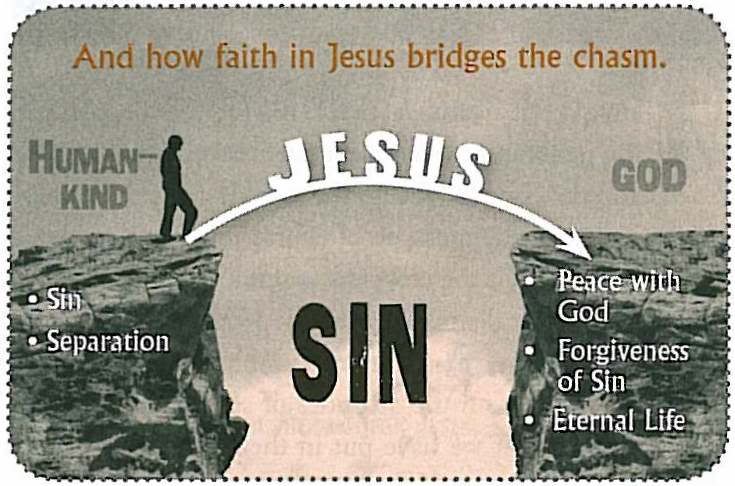Cross Over the Bridge
There is nothing that can stop God from reaching you but you.
“Comfort, comfort my people, says your God. Every valley shall be raised, every mountain and hill made low; the rough ground shall become level, the rugged places a plain.” (Isaiah 40:1, 4)
A road always means that someone has been there ahead of you.
I’ve always been fascinated by explorers, especially overland pioneers like Sieur de La Salle, Daniel Boone, Davy Crockett, Lewis and Clark, Alexander Mackenzie, and Jedediah Smith. One can only admire these trailblazers who cleared the narrow, rocky, thorny, and enemy-filled paths that are now our highways through the wilderness.
Consider the energy needed to turn a path into a highway.
Think about the effort needed to create the First Transcontinental Railroad. The “Pacific Railroad,” later known as the “Overland Route,” was a 1,900-mile continuous track built between 1863 and 1869. It was constructed to connect to the Eastern U.S. rail network. When completed, it connected America from coast to coast. Now, think about it. Consider the enormous effort required to accomplish this monumental task! Think of the sacrifice! The Transcontinental Railroad was built almost entirely by hand. Workers drove spikes into mountains, filled the holes with black powder, and blasted through the rock inch by inch. handcarts moved the dirt from cuts to fills. Bridges, including one 700 feet long and 126 feet above the ground, had to be built to cross streams. Thousands of workers, including Irish and German immigrants, former Union and Confederate soldiers, freed slaves, and especially Chinese immigrants, played a part in the construction.
In fact, Chinese laborers first worked for the Central Pacific as it began crossing California’s Sierra Nevada Mountains in 1865. At one point, the work was so labor-intensive that Chinese workers were lowered in hand-woven reed baskets to drill blasting holes in the rock. They placed the explosives in each hole, lit the fuses, and were hopefully pulled up before the powder was detonated. Explosions, freezing temperatures, and avalanches in the High Sierras killed hundreds. Many worked and sacrificed to make their way through the mountains, valleys, and the desert!
But in this article, I’m not talking about physical highways and railroads. I’m talking about the longest, highest, greatest, bloodiest, most traveled road that was ever built—the spiritual road that leads from Man to God. When you were lost in the exile of your sin, when the valleys of your despair seemed impossible to climb, when the mountaintops in front of you looked like giant colossi daring you to defy them, when exhaustion made it impossible to take another step, and all hope of reaching God seemed humanly unreachable, God did something no human resourcefulness could ever do. He made a way when there was no way.
As he made a way through the Red Sea for hopeless Israel, as he carved a path through a waste, howling wilderness for them, and as he crossed the Jordan River as it flooded its banks, he made a way to God for you.
The bridge between God and man is not a physical one but a personal one. That bridge is Jesus Himself. At Calvary, Jesus took God’s hand and man’s hands and brought them together in reconciliation. He says, “I am the way, the truth, and the life; no man comes to the Father but through me.” The bridge over your troubled waters is Jesus Christ Himself. God is declaring to you that where there is no way out with man, He can make a way. He is the only bridge from earth to heaven. He is the bridge over hell. He is the way-maker who can make a way where there seems to be no way. There is no sea of impossibility that He cannot make a way through; there is no desert place where He cannot make living waters flow; there is no valley of despair where He cannot do exceedingly and abundantly above all you can ask or think.
Isaiah 43:16, “This is what the Lord says, he who made a way through the sea, a path through the mighty waters.”
Best of All, He’s Only a Prayer Away!
Dr. Robert Bryant

